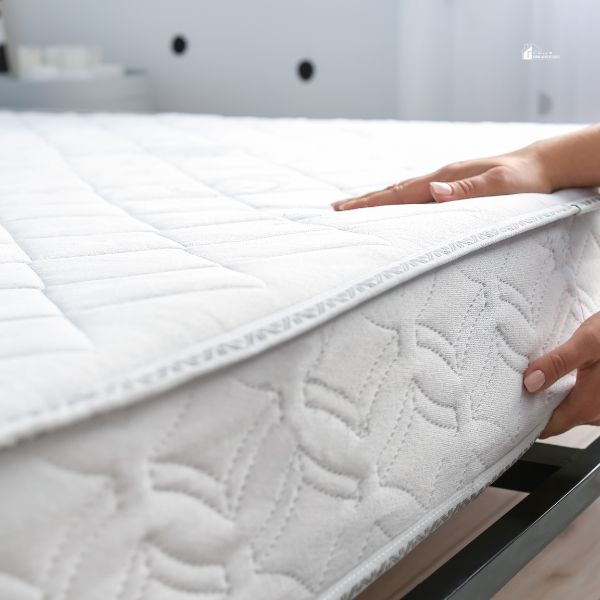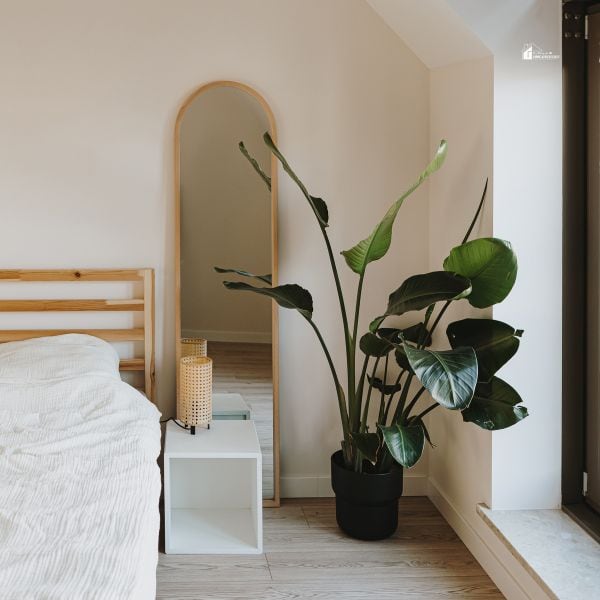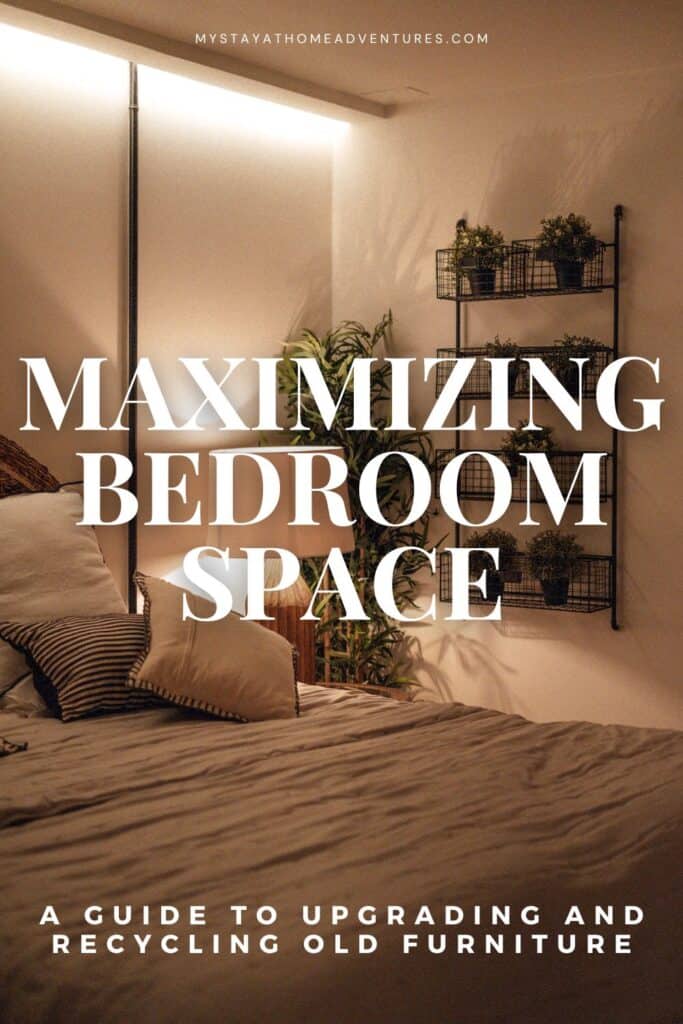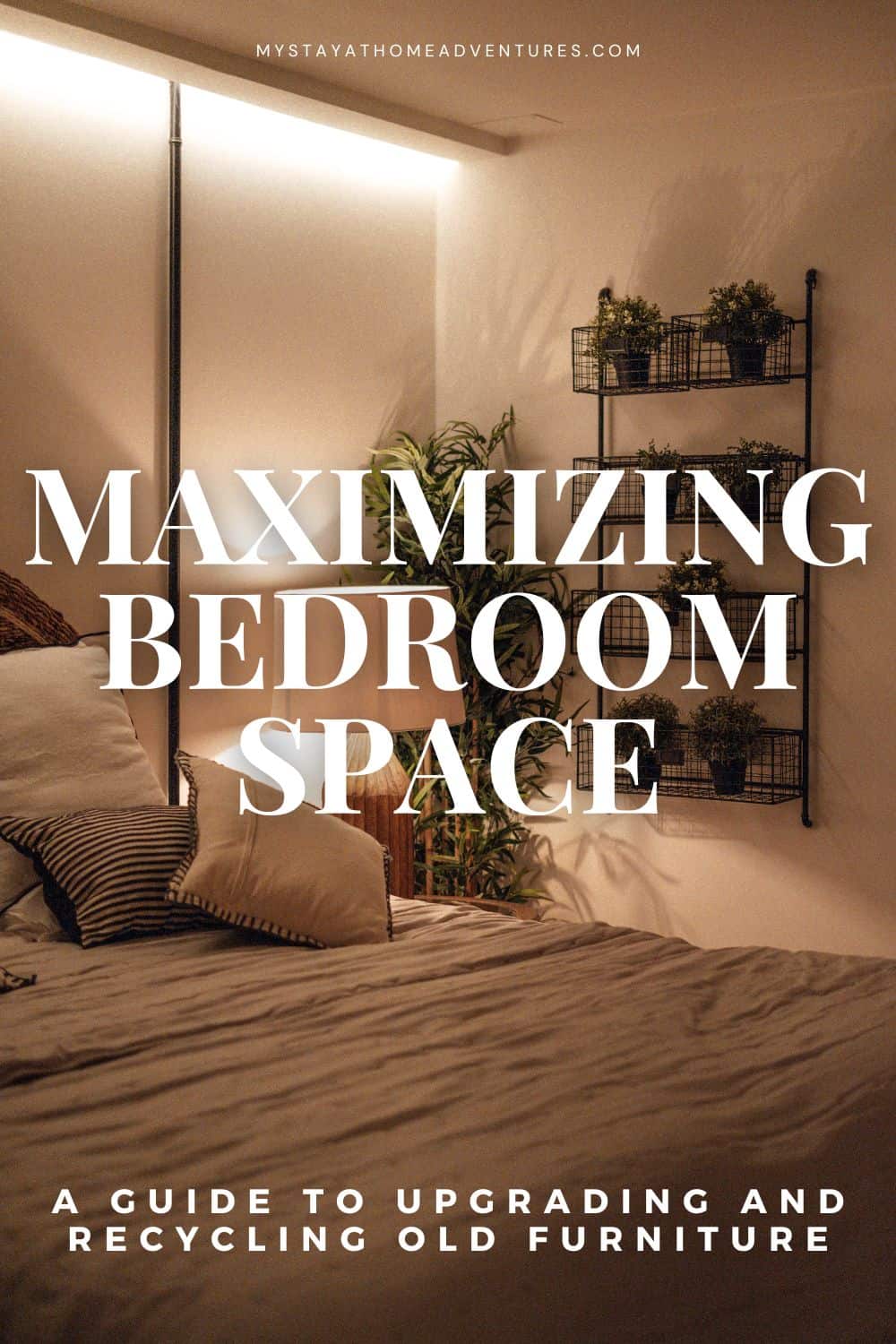Maximizing Bedroom Space: A Guide to Upgrading and Recycling Old Furniture
This post may contain affiliate links which might earn us money. Please read my Disclosure and Privacy policies hereMaximizing bedroom space often requires a blend of creativity, strategic planning, and a commitment to sustainability. As lifestyles evolve and personal spaces demand more functionality, the bedroom has become more than just a place for rest. It's a sanctuary for relaxation, a personal workstation, and, for many, a creative corner.
One significant challenge that arises with multifunctional spaces is managing clutter and ensuring that every piece of furniture serves a purpose. Upgrading and recycling old furniture is not just an economical approach to revamping your space but also an eco-friendly gesture towards reducing waste.
This article explores ways for upgrading and recycling old furniture.

Assess Your Current Bedroom Layout
The first step in maximizing bedroom space is to evaluate the current layout and identify pieces that no longer serve your needs or fit your style. Consider the flow of the room and how each furniture piece contributes to its functionality. It might be time to say goodbye to bulky items that consume too much space or to repurpose others that can serve more than one function.
Make Decisions About Your Old Mattress
A common bulky item in any bedroom is the mattress. It's also one of the most challenging pieces to dispose of due to its size and material composition. However, parting with your old mattress can significantly free up space, especially if you opt for a more space-efficient bed frame or mattress in the future. If you are wondering what to do with your old mattress, consider recycling or donating it, provided it's in a condition that complies with the guidelines for reuse.
Upcycle Furniture for Enhanced Functionality
Upcycling is a creative and environmentally friendly approach to upgrading old furniture. With a bit of creativity, a simple dresser can be transformed into a dual-purpose piece, serving both as storage and a workstation. Consider repainting or refinishing surfaces to give your old furniture a fresh look that aligns with your bedroom's aesthetic. Adding new hardware can also significantly change the appearance of an old piece, making it look brand new.
Invest in Space-Saving Furniture Solutions
Innovative furniture designs that cater to small spaces can significantly enhance the functionality of your bedroom. Murphy beds, for instance, can be tucked away when not in use, freeing up floor space for other activities during the day. Similarly, opting for pieces with built-in storage can reduce the need for additional storage units, keeping your bedroom clutter-free.
Implement Vertical Storage Options
Maximizing vertical space is a game-changer in small bedrooms. Tall, narrow shelving units take up minimal floor space while providing ample storage. Hanging shelves on walls or over doors can also offer extra space for books, accessories, and decorative items, keeping them off the floor and out of the way.

Create the Illusion of Space with Mirrors
Strategically placed mirrors can make a small bedroom appear larger. Consider installing a large mirror on one wall or using mirrored closet doors. The reflection can help add depth to the room and enhance natural light, making the space feel airier and more open.
Declutter
Regular decluttering sessions are essential in maintaining a spacious and organized bedroom. Evaluate each item's necessity and functionality, and be willing to part with things that no longer serve a purpose. This practice can help keep your space tidy and ensure that your bedroom remains a serene and inviting retreat.
Incorporate Multi-Functional Pieces
Furniture that serves multiple purposes is invaluable in a small bedroom. Ottomans with storage, for instance, can be used as seating, a footrest, or a place to store linens and seasonal clothing. Likewise, a fold-down desk can serve as a makeup vanity or a workspace, depending on your needs.
Embrace Minimalism for Maximum Space
Adopting a minimalist approach can significantly impact the spaciousness of your bedroom. This doesn't necessarily mean living with the bare essentials but rather choosing pieces that are both functional and aesthetically pleasing. A minimalist bedroom focuses on quality over quantity, ensuring each item has a purpose and a place.
Choose a Neutral Color Palette
A neutral color palette can make a small bedroom feel more spacious and relaxing. Light colors reflect more light, making the room appear brighter and larger. Consider soft tones like beige, light gray, or pastels for walls, bedding, and furniture. These colors also offer the flexibility to incorporate accent colors through accessories, which can be changed seasonally or as your tastes evolve.

Conclusion: A Personalized Approach to Bedroom Optimization
Maximizing bedroom space through the upgrading and recycling of old furniture is not just about achieving a certain look; it's about tailoring your space to fit your lifestyle and preferences. By making thoughtful decisions about which pieces to keep, repurpose, or let go, you can create a bedroom that is stylish, organized, and fully aligned with your personal needs and sustainability values. Remember, the goal is to create a space that feels open, comfortable, and uniquely yours.







